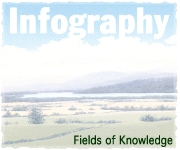
 | |
Philosophy of Expertise | |
The following sources are recommended by a professor whose research specialty is the philosophy of expertise. |
· Collins, Harry, and Robert Evans. 2002. "The Third Wave of Science Studies: Studies of Expertise and Experience." Social Studies of Science 32: 235-96. http://sss.sagepub.com/cgi/content/abstract/32/2/235
· Crease, Robert, and Evan Seliger. 2002. "Dreyfus on Expertise: The Limits of Phenomenological Analysis." Continental Philosophy Review 35: 245-79. http://people.rit.edu/emsgsh/selingerondreyfus.pdf
· Dreyfus, Hubert, and S. Dreyfus. 1986. Mind over Machine: The Power of Human Intuition and Expertise in the Era of the Computer. Free Press.
· Goldman, Alvin. 2001. "Experts: Which Ones Should You Trust?" Philosophy and Phenomenological Research 63: 85-110.
· Turner, Stephen. 2001. "What Is the Problem with Experts?" Social Studies of Science 31: 123-49. http://sss.sagepub.com/cgi/content/abstract/31/1/123
· Wynne, Brian. 1996. "May the Sheep Safely Graze? A Reflexive View of the Expert-Lay Knowledge Divide." Lash, S., B. Szersynki, and B. Wynne (eds.), Risk, Environment, and Modernity: Towards a New Ecology, Sage, 44-83.
· Annas, Juila. 2001. "Moral Knowledge as Practical Knowledge." Social Philosophy and Policy 18: 236-56.
· Brewer, Scott. 1998. "Scientific Expert Testimony and Intellectual Due Process." Yale Law Journal 107: 1535, 1673-79.
· Guston, David H., William Clark, Terry Keating, David Cash, Susanne Moser, Clark Miller, and Charles Powers (eds). 1999. Report of the Workshop on Boundary Organizations in Environmental Policy and Science. 9-10 December 1999, New Brunswick, New Jersey. BCSIA Discussion Paper 2000-32. Belfrer Center for Science and International Affairs, John F. Kennedy School of Government, Harvard University. http://www.belfercenter.org/publication/2760/report_of_the_workshop_on_boundary_organizations_in_environmental_policy_and_science.html
· Hardwig, John. 1994. "Toward an Ethics of Expertise." Wueste, D. (ed.), Professional Ethics and Social Responsiblity, Rowman and Littlefield, 82-101. http://web.utk.edu/~jhardwig/expertis.htm
· Ihde, Don. 1998. "Why Not Science Critics?" in Expanding Hermenuetics: Visualism in Science. Ihde, Don, Northwestern University Studies in Phenomenology and Existential Philosophy, Northwestern University Press, 127-38. http://ws.cc.stonybrook.edu/philosophy/research/ihde_5.html
· Jasanoff, Sheila. 2003. "(No?) Accounting for Expertise." Science and Public Policy 30.3 (June): 157-62.
· Jasanoff, Sheila. 1997. Science at the Bar: Law, Science, and Technology in America. Harvard University Press.
· Kusch, Martin.Social Epistemology. University of Cambridge. http://www.hps.cam.ac.uk/research/se.html
· Mialet, Hélène. 1999. "Do Angels Have Bodies? Two Stories about Subjectivity in Science: The Cases of William X and Mister H." Social Studies of Science 29.4: 551-82. http://sss.sagepub.com/cgi/content/abstract/29/4/551
· Turner, Stephen. 2003. Liberal Democracy 3.0: Civil Society in an Age of Experts. Sage.
"The Infography about the Philosophy of Expertise"
http://www.infography.com/content/381512022289.html
© 2009 Fields of Knowledge
Essex, Iowa 51638-4608 USA